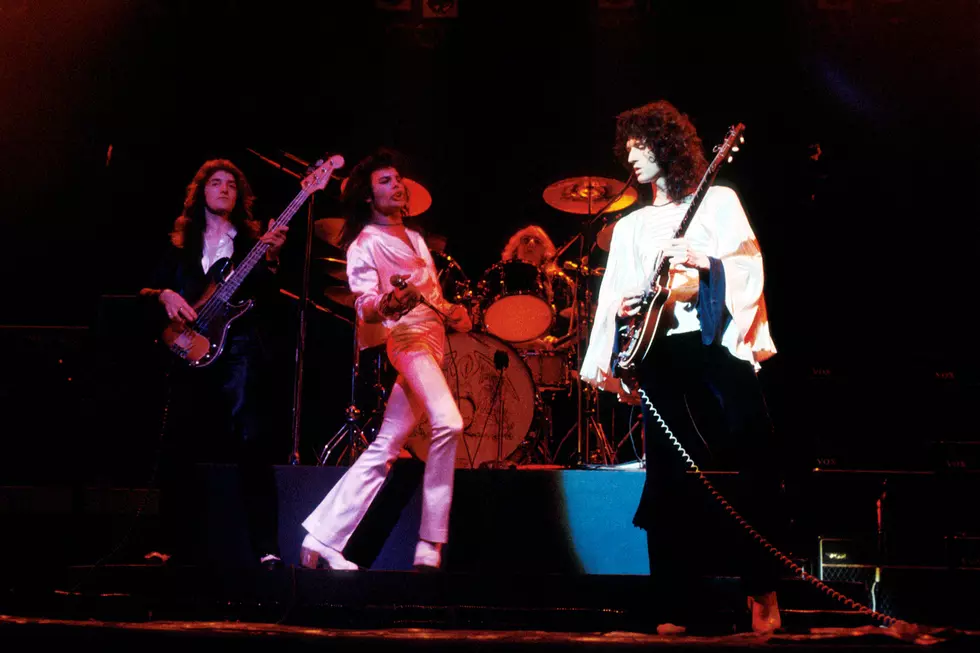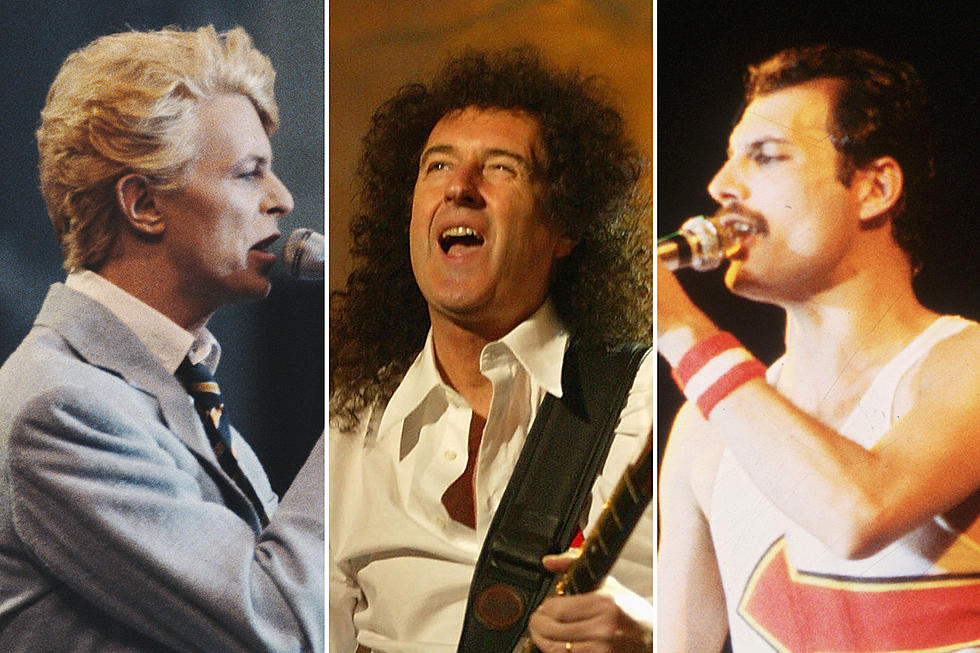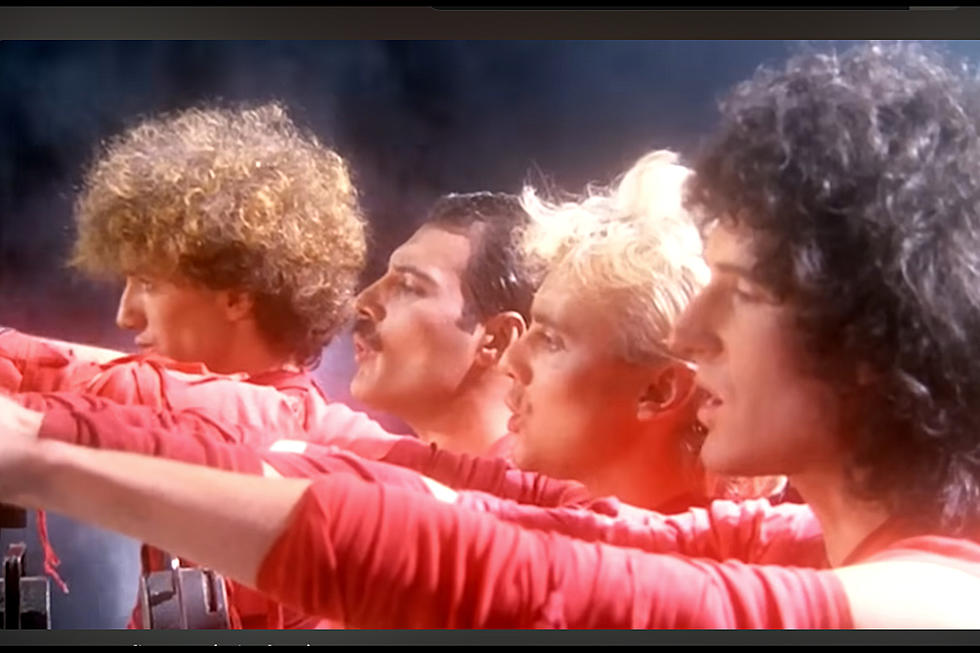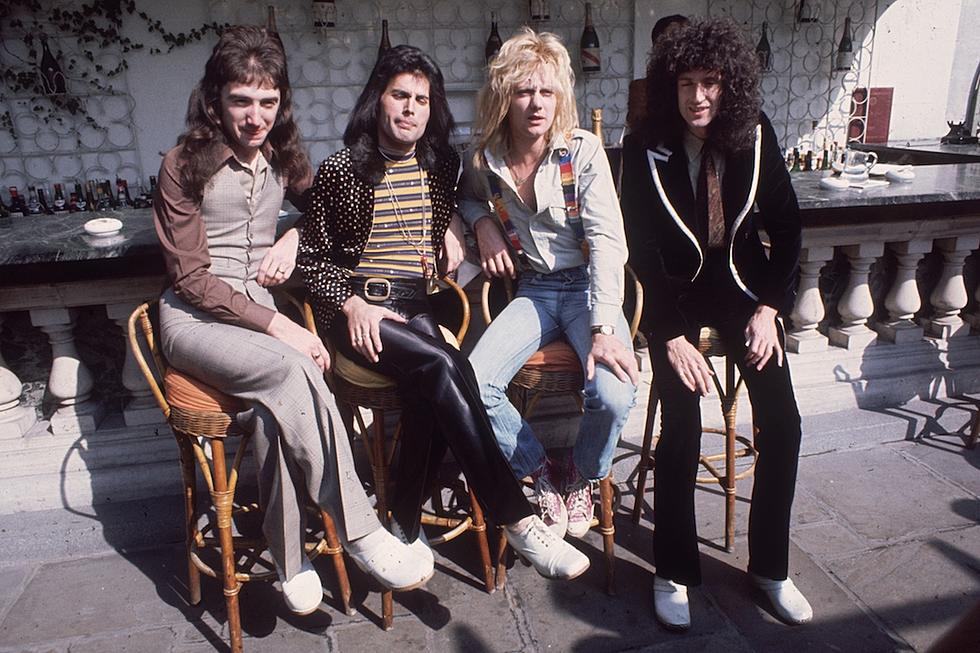
The Day Freddie Mercury’s Mustache Appeared
Queen had entered the ‘80s with the release of their single “Save Me” in January 1980, but that soon seemed like a toe in the water when follow-up “Play the Game” arrived on May 30. The song itself was notable for being the first Queen piece to feature a synthesizer, but it was the video that generated the real buzz.
Freddie Mercury had already cut off his trademark long hair and stopped painting his fingernails. The “Save Me” video and the album art for turning-point album The Game – to arrive in June – showed him without those classic ‘70s adornments. The changes had caused “the grief of many of his female fans,” as Jacky Gunn reported in 1992 book Queen: As It Began, adding: “The result was that gifts of razors and bottle of black nail polish flooded the band’s offices.”
The new look, which had tightened up by the time of “The Game” video, was clearly inspired by the trends seen in the gay clubs of San Francisco; and Mercury was unrepentant if anyone had a problem with his appearance. “When I look back on all that black nail varnish, chiffon, satin, I think, ‘God! What was I doing?’” he said, pressing the point home.
Recording the comment in 2015 book Freddie Mercury: A Kind of Magic, Mark Blake noted: “As ever, he was hiding his sexuality in plain sight.” When the mustache first appeared, Mercury asked longtime roadie Peter Hince to take a picture, and on seeing the result, the flamboyant frontman declared his love for it. “He was in the minority,” Hince said.
Opinion did appear to be divided – although Mercury himself would have wanted nothing else. It’s claimed that some fans brought disposable razors to shows and threw them onto the stage. In one concert recording of the time (below) he speaks to his fans, saying: “Do you girls like this mustache? Any boys like the mustache? A lot of people are hating it – I don’t give a fuck, actually… it’s my mustache and I’m gonna keep it!”
Freddie Mercury Mustache Banter
Regardless of what the rest of the world might have been saying, the other members of Queen weren’t bothered by the big change. They may not have been consulted, but they were more than accustomed to accommodating whatever Mercury needed to remain the cutting-edge expressionist he was loved for being. “One man grows a mustache – not a big deal,” drummer Roger Taylor commented. “But it obviously was in his case. It represented the gay scene at the time. It didn’t bother us at all. Do what you want.”
Queen - ‘Play the Game’
Retrospectively, of course, the sharp new look became a key part of the Mercury brand as Queen achieved new heights during the final decade of his life. In 2020 GQ observed: “With a neatly clipped mop of hair and perfectly trimmed moustache, his facial styling went against the sea of perms, manes and mullets that dominated the decade and is the one 1980s reference we can get away with re-creating without looking like total idiots.”
Freddie Mercury Through the Years
More From Ultimate Classic Rock









